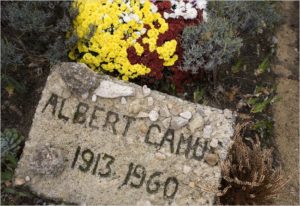France is a land of mysteries, intrigue, fun and paradox. It also has some of the best writers known to man today. French literature is a delight to read and it has continued to grow since the medieval times when writers first started putting words to paper. French authors who keep people glued to their literary work are as mysterious as their home country. They are full of paradox but through them, the world learnt and continues to learn snippets and details of French history and culture.
Below are facts you did not know about two of the most celebrated French literary authors.
Voltaire

Voltaire is arguably one of the most controversial and best French literary authors. Most of his writings evoked mixed emotions due to their critical nature. Born as Francois Marie Arouet, on November 21, 1694 in Paris, Voltaire enjoyed middle class up bringing since his father was a notary. When Voltaire was seven years, he lost his mother, which turned him into a rebel towards his father and siblings. He found refuge with his free-thinker godfather Abbe Chateauneuf.
Voltaire went to a Jesuit college called ‘Louis-le-Grand’, in Paris where he developed his passion for everything literature. His father dictated his career choices and even though he wanted to become a playwright, his father sent him to work as a notary assistant instead. Instead of delving into his work, Voltaire wrote satirical poetry at any chance he got which did not go well with the father. This saw Voltaire start working as the secretary of the French Ambassador in Netherlands. He fell in love with a French refugee, Catherine Dunoyer, which had him sent back to Paris.
His first satire published in 1717 found him imprisoned in Bastille and banished from Paris. He wrote his first book “Oedipe” while in prison. He again clashed with high and mighty in 1726 and exiled in England without trial. Later after his return to Paris, he inherited money from his father giving him financial independence.
In 1734, he fled his country again after publishing “Philosophical Letters on the English” which did not receive any support from the French because the essays defended the British system
He was in exile between 1734 and 1749 and used this time to study and perform natural science experiments with Marquise Émiliedu Châtelet.
When Marquise died, Voltaire went to Potsdam and attacked the president of the ‘Berlin Academy of Science’ after a short stay there. To avoid arrest, he fled the country and eventually settled near Switzerland in a place called Ferney.
Albert Camus

Born on November 7, 1913, Camus was a French Algerian national. He was born before the beginning of the First World War. His parents Lucien Auguste Camus and Catherine Hélène Sintés were semi-proletariat. His father died when he was still an infant and he grew up with his grandmother in the suburbs of Algiers. He attended his early education at the local EcoleCommunale, where one of the teachers spotted him and told the grandmother to allow young Camus to study.
He got a scholarship, which took him at the LycéeBugeaud. He loved the school very much and especially the teacher that mentored him that he decided to become a teacher and a writer. He however had health problems, recurring tuberculosis, which made it almost impossible for him to live his dream of becoming a teacher. Camus instead, became a writer emerging as an accomplished author, a professional journalist, and a great theatre professional. It took him a couple of years to get the recognition he deserved as a writer.
At the age of 44, he won the noble prizes for literature, making him one of the youngest recipients of the prestigious award. He passed away two years later after receiving the award at the age of 46 in a road accident. Camus was a father of two.
 Chroniques de la Rentrée Littéraire is a website for French book enthusiasts. The website gives detailed suggestions and recommendations on everything you need to know about French books in either print or the upcoming ones. Through the website, you also get to find out what French book are currently being translated to other languages especially into English and which ones are waiting for translation.
Chroniques de la Rentrée Littéraire is a website for French book enthusiasts. The website gives detailed suggestions and recommendations on everything you need to know about French books in either print or the upcoming ones. Through the website, you also get to find out what French book are currently being translated to other languages especially into English and which ones are waiting for translation.




